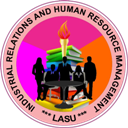LASU Journal of Employment Relations and Human Resource Management
(LJERHRM)
ISSN: 2705-3482
Volume 1, No. 1, December 2018
Pages 17-25
DOI: 10.36108/ljerhrm/8102.01.0130
THE IMPACT OF DEMOCRATIC SYSTEM OF GOVERNMENT ON POVERTY ALLEVIATION IN NIGERIAN ECONOMY (1999 – 2018) (USING FOSTER, GREEN AND THORBECKE APPROACH)
YA’U, Shehu1, NUHU, Zira2, PETER, AkohJ.3, SHETTIMA DIBAL, MohammedY4 and SULEIMAN, Ahmed 5
Centre for Entrepreneurship Development, Federal University Dutse, Jigawa State1
Department of Economics, Kaduna State University, Kaduna State2
Northlink Insurance Broker Plc, Garki, Abuja3
Faculty of General Studies, Federal University Dutse, Jigawa State4
Asset Management Corporation of Nigeria (AMCON)5
shehuy10@gmail.com1, ziranuhu1@gmail.com2, jonpitas@gmail.com3,omedyuguda94@gmail.com4, ahmedakazt@gmail.com5
Abstract
The study assesses the impact of democratic system of government on poverty alleviation in Nigeria The data were collected through structured questionnaire from a sample of 400 respondents drawn from 6 purposively selected wards, 24 purposively selected villages and lower classes are randomly selected from each village. The data analyzed by the use of descriptive statistics and other tests. The study found that the respondents are earning an average of N1, 054.84 daily in the study area, about 81.5 percent of the respondents live above poverty line. This has shown that, the respondents have benefitted from some of the poverty alleviation programs provided by the Nigerian government during this democratic dispensation. Thus, the study recommends that the government should establish more policies toward poverty alleviation programs in the study area. Also government should make access to poverty alleviation programs in the most remote areas simpler and more accessible in the study area.
Keywords: Democracy, Government, Poverty Alleviation and Economic Growth.

